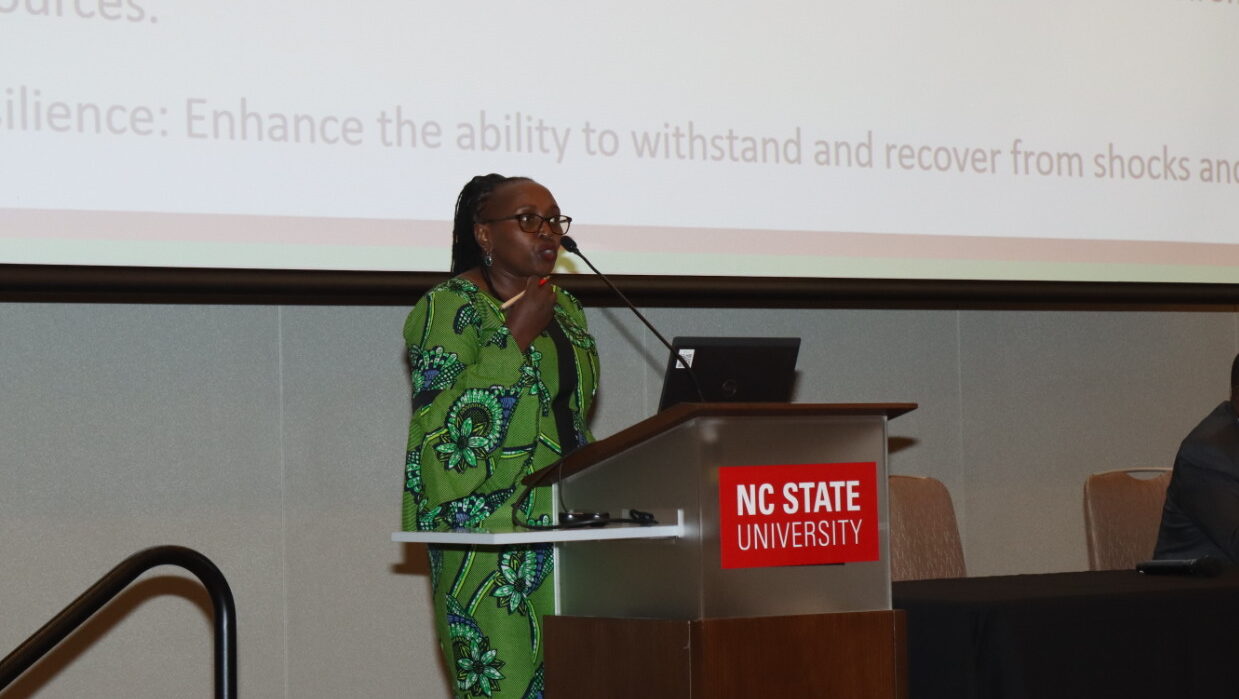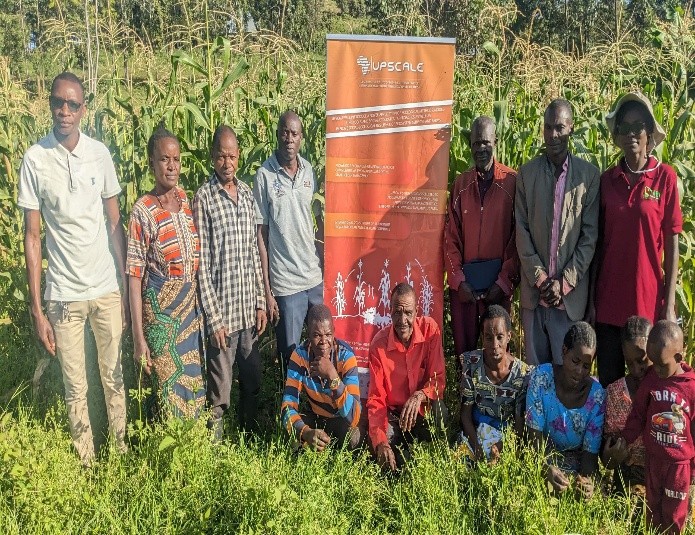Name of the event: “Building Partnerships for Health and Sustainable Agricultural Development in East Africa” symposium
Date: The meeting took place from the 18th to the 20th of September 2023
Venue: The symposium was organised by the Global One Health Academy and CALS International Programs at NC State University
This symposium convened experts from Kenya, Malawi, Uganda, and Tanzania, as well as experts from various fields at NC State, and forged partnerships that fostered sustainable agricultural development and improved health and well-being in rural East African communities. Further, the symposium had centered on: 1) agricultural development and its links to nutrition and environmental sustainability, 2) water sanitation and hygiene and its links to human, animal, and environmental health, and 3) approaches for combating infectious diseases, including vector-borne diseases and antimicrobial resistance. Within agricultural development, the discussions encompassed plant and crop production, pests and plant diseases, value added production, animal production, agriculture engineering and irrigation.
Among the speakers, Dr Alice Murage presented UPSCALE, our research progress and results on the sustainable intensification in sub-Saharan Africa related to push-pull technology. Dr Murage has a PhD in agricultural economics from the Egerton University, in collaboration with Justus Libeig Universitat, Germany; MSc in Agricultural Economics and BSc in Agriculture (Economics option) from University of Nairobi, Kenya. Her research interest is in economic analysis, gender, food security, and climate change adaptation. Her strength is in qualitative analysis, and problem-solving with excellent communication and writing skills to convey complex information to diverse audiences. She is currently an Assistant Director in charge of research Methods and Analytics at Kenya Agricultural and Livestock Research Organization (KALRO). Dr Murage has coauthored over 20 publications in refereed journals, over 20 articles in regional and international conferences, many project reports, discussion papers and policy briefs. The UPSCALE project is proud to have her among the dedicated team members.
Abstract of the presentation given by Dr Murage
The Role of Agri-Food Markets on Sustainable Development and Gender Equity: a case of Push-pull farmers in Eastern Africa
Markets serve as versatile platforms for the exchange of agricultural products, whether in physical or virtual form. Their pivotal role in shaping the socio-economic landscape of communities cannot be overstated. By seamlessly connecting the hard work of farmers to the tables of consumers, these markets become the bedrock of food security. They ensure a steady supply of nutritious goods to both urban and rural populations, thereby fostering local economic growth, facilitating job creation, income generation, and ultimately contributing to the enhancement of livelihoods, the alleviation of poverty, and the overall well-being of communities. This study evaluated the relationship between market access and household food security, using Household Dietary Diversity Score (HDDS), Food Consumption Score (FCS), Food Coping Strategy Index (FCSI), and Food Insecurity Experience Scale (FIES) parameters. An in-depth analysis was conducted using a multiple regression model, utilizing baseline data collected between April and August 2021 in Kenya, Uganda, Tanzania, Rwanda, and Ethiopia under the UPSCALE project. The findings revealed that farmers with access to crop and livestock markets, adopters of the push-pull farming approach, individuals with supplementary off-farm income, older farmers, and those with higher levels of education were associated with greater food security. Conversely, limited access to credit and larger household sizes correlated with increased food insecurity. These insights underscore the intricate interplay between market access, sustainable livelihoods, and food security, providing valuable guidance for policies and interventions aimed at promoting economic stability and equitable access to nourishment in Eastern African communities



